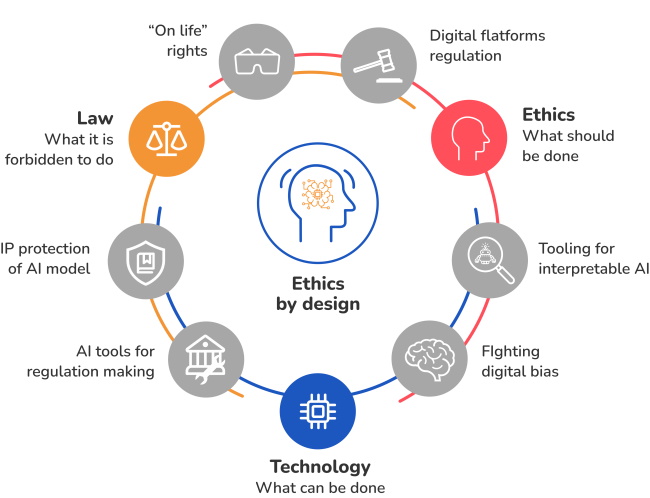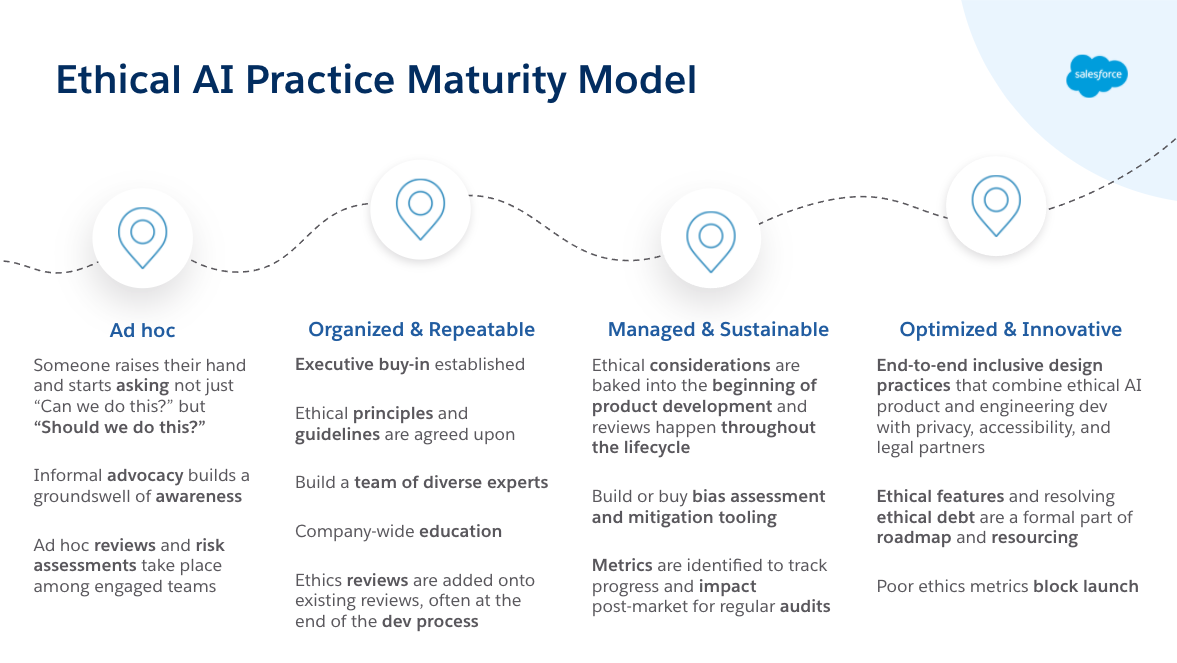Comments
- No comments found

Artificial intelligence (AI) has come a long way since the first computer was invented.
Today, AI is used in a variety of applications, from voice assistants to self-driving cars. As AI continues to advance, it raises ethical concerns about the potential impact on society. One concept that has become increasingly important in AI development and ethics is realism. Realism refers to the ability of AI to accurately represent the real world. In this article, we will explore the role of realism in AI development and ethics.
The ability to accurately represent the real world is one of the most important aspects of AI development. This is especially important in applications like self-driving cars, in which the AI system must recognise and respond to real-world objects and situations. If the AI system isn't realistic, it won't be able to accurately identify and respond to objects in its environment, which could lead to accidents.
Using large datasets to train AI models is one way AI developers can ensure realism. These datasets contain millions of images, videos, and other forms of data from which the AI system can learn about the real world. A self-driving car, for example, could be trained on a dataset of millions of images of roads, traffic lights, and other objects encountered on the road. The AI system can learn to recognise objects and situations in the real world by training on a large dataset.
Simulators are another method used by AI developers to ensure realism. Computer programmes that simulate real-world scenarios are known as simulations. A self-driving car, for example, could be tested in a simulation that mimics various weather conditions, road conditions, and traffic situations. Developers can ensure that the AI system can accurately respond to different scenarios that it may encounter in the real world by testing it in a simulation.

Realism is not only important in AI development, but also in AI ethics. One of the most serious ethical concerns about AI is the possibility of AI systems making biassed or discriminatory decisions. For example, if an AI system is trained on a dataset that only contains images of white faces, it may be unable to recognise faces of other races accurately. This may result in skewed decisions, such as incorrectly labelling a person of colour as a criminal.
To address this concern, AI developers and ethicists are working to ensure that AI systems are trained on diverse datasets that accurately represent the real world. This means including images and data from a wide range of sources, including different races, genders, and ages. By ensuring that AI systems are trained on diverse datasets, developers can help to minimize the potential for bias and discrimination.
Another ethical concern about AI is the potential for AI systems to replace human workers. While AI has the potential to improve efficiency and productivity, it could also lead to job losses and economic inequality. To address this concern, ethicists and policymakers are exploring ways to ensure that AI is used in ways that benefit society as a whole, rather than just a small group of people.
Realism is also important in AI transparency and accountability. As AI systems become more complex, it becomes increasingly difficult to understand how they make decisions. This is known as the "black box" problem, where the inner workings of the AI system are opaque to human observers. To address this problem, ethicists and policymakers are exploring ways to make AI systems more transparent and accountable. One way to do this is by requiring AI developers to provide explanations for the decisions made by their AI systems. This can help to ensure that AI systems are making decisions that are fair and unbiased.
Artificial intelligence (AI) has come a long way since the first computer was invented. Today, AI is used in a variety of applications, from voice assistants to self-driving cars. As AI continues to advance, it raises ethical concerns about the potential impact on society. One concept that has become increasingly important in AI development and ethics is realism. Realism refers to the ability of AI to accurately represent the real world. In this article, we will explore the role of realism in AI development and ethics.
One of the most important aspects of AI development is the ability to accurately represent the real world. This is particularly important in applications such as self-driving cars, where the AI system needs to be able to recognize and respond to real-world objects and situations. If the AI system is not realistic, it may not be able to accurately identify and respond to objects in its environment, potentially leading to accidents.
One way that AI developers ensure realism is by using large datasets to train their AI models. These datasets contain millions of images, videos, and other types of data that the AI system can use to learn about the real world. For example, a self-driving car might be trained on a dataset of millions of images of roads, traffic lights, and other objects it might encounter on the road. By training on a large dataset, the AI system can learn to recognize objects and situations it might encounter in the real world.
Another way that AI developers ensure realism is by using simulations. Simulations are computer programs that simulate real-world scenarios. For example, a self-driving car might be tested in a simulation that simulates different weather conditions, road conditions, and traffic situations. By testing the AI system in a simulation, developers can ensure that it can accurately respond to different scenarios that it might encounter in the real world.
Realism is not just important in AI development; it is also important in AI ethics. One of the main ethical concerns about AI is the potential for AI systems to make biased or discriminatory decisions. For example, if an AI system is trained on a dataset that contains only images of white faces, it may not be able to accurately recognize faces of other races. This could lead to biased decisions, such as incorrectly identifying a person of color as a criminal.

To address this concern, AI developers, policymakers and ethicists must ensure that AI systems are trained on diverse datasets that accurately represent the real world. This means including images and data from a wide range of sources, including different races, genders, and ages. By ensuring that AI systems are trained on diverse datasets, developers can help to minimize the potential for bias and discrimination.
Another ethical concern about AI is the potential for AI systems to replace human workers. While AI has the potential to improve efficiency and productivity, it could also lead to job losses and economic inequality. To address this concern, ethicists and policymakers are exploring ways to ensure that AI is used in ways that benefit society as a whole, rather than just a small group of people.
Realism is also important in AI transparency and accountability. As AI systems become more complex, it becomes increasingly difficult to understand how they make decisions. This is known as the "black box" problem, where the inner workings of the AI system are opaque to human observers. To address this problem, ethicists and policymakers are exploring ways to make AI systems more transparent and accountable. One way to do this is by requiring AI developers to provide explanations for the decisions made by their AI systems. This can help to ensure that AI systems are making decisions that are fair and unbiased.
Realism is a crucial concept in AI development and ethics. By ensuring that AI systems accurately represent the real world, developers can help to minimize the potential for accidents and ensure that AI systems make fair and unbiased decisions. Realism also plays a vital role in AI ethics, by minimizing the potential for biased and discriminatory decisions, ensuring that AI is used in ways that benefit society as a whole, and promoting transparency and accountability in AI systems.
As AI continues to advance, it is essential that developers and ethicists prioritize realism in their work. This means ensuring that AI systems are trained on diverse datasets that accurately represent the real world, testing them in simulations that simulate real-world scenarios, and making them transparent and accountable to human observers. By prioritizing realism, we can ensure that AI is developed and used in ways that benefit society and minimize potential harms.
Leave your comments
Post comment as a guest